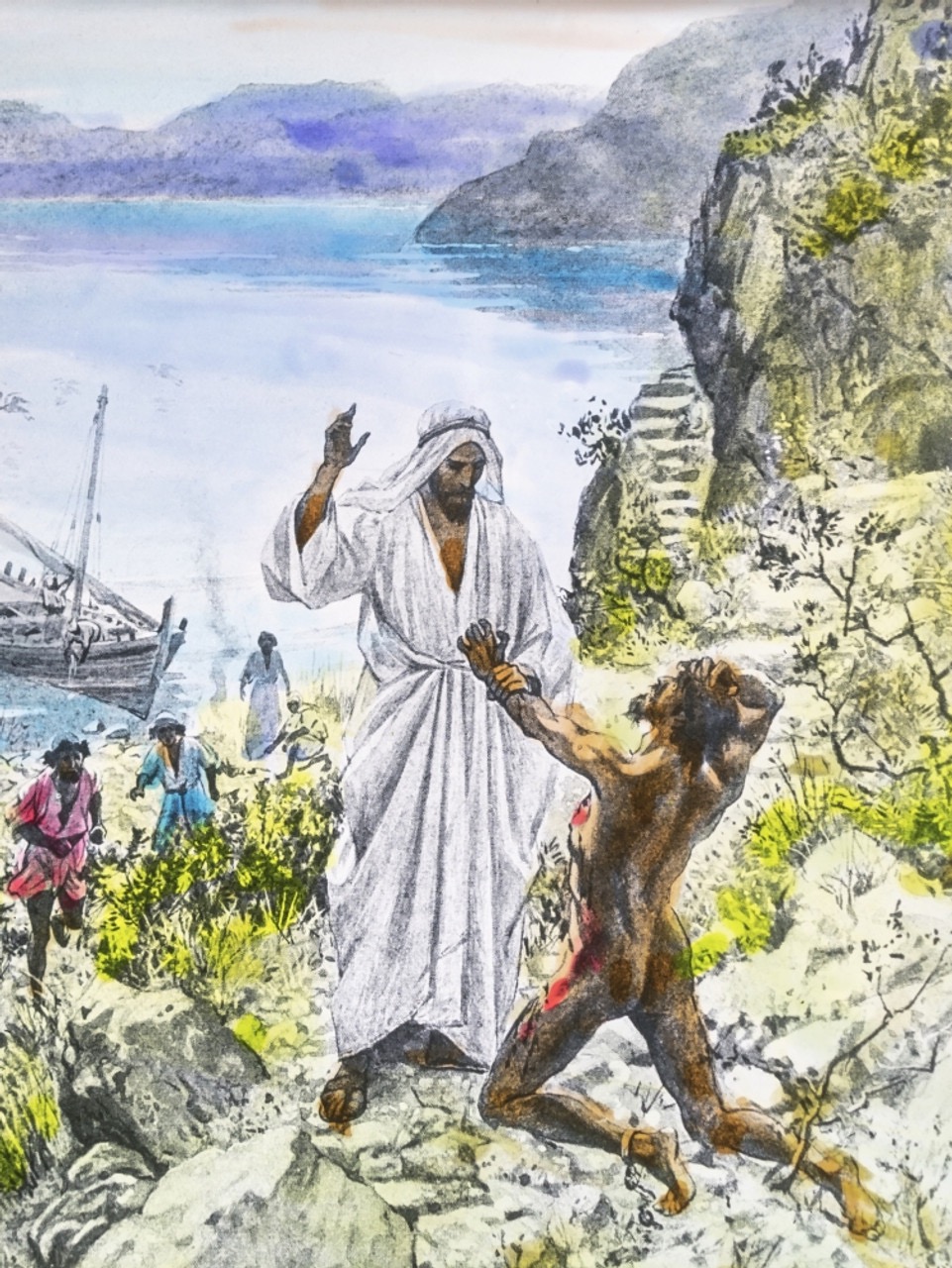Lost and Found

In 2013, I visited Israel for the first time. I was part of a group of pilgrims which traveled around the biblical sites of the Holy Land. One of the places we visited was Lake Tiberius, also known as the Sea of Galilee. Around the lake were places with familiar names - Capernaum, Magdala, Genneserat - where Jesus conducted his roaming ministry. Jesus’ first followers came from the ranks of the fishermen who lived around the shore’s edge and who fished in the lake. Jesus employed the metaphor of fishing to describe the catching and converting of souls for the kingdom of heaven.
Our pilgrimage leader encouraged the group to enter “liminal space.” The limen, he explained, “is the threshold, the place of departure, a springboard into a fresh way of doing things.” He pointed out that Jesus called his followers to step out of their comfort zones in order to experience the new and unfamiliar.
We were about to put this theory into practice, as we boarded a small boat moored on the shores of Tiberius. We were following in the footsteps of Jesus, who asked his disciples to accompany him from one side of the lake to the other. The idea of “crossing over” has both a physical and spiritual dimension. In ancient times, to cross from the familiar side of Lake Tiberius to the more dangerous eastern side was to take a risk. You never knew who or what you might encounter there.
This is how the gospel reading from last Sunday begins: “Jesus and his disciples arrived in the country of the Gerasenes, which is opposite Galilee.” (Luke 8:26-39) Upon arrival the disciples are met by a wild man possessed by demons. It would have been a terrifying experience for them. The man is naked and clearly not in his right mind. One can imagine the disciples thinking to themselves, “this is why we stay on our side of Galilee.”
The fact that the man has chosen to live in tombs - where dead people are buried - indicates that he sees himself also as dead. The death he has experienced is real: a spiritual death which has occurred through the loss of his personal identity. When Jesus asks him his name, the man replies sarcastically, “Legion.” A legion was a Roman division comprising 6,000 men.
To everyone, apart from Jesus, the man is a lost cause. We don’t know what led to him being in this woeful state. He is barely alive, at least on the level of having a worthwhile and productive life. He is the man we cross the street to avoid. He exists at the level of instinct and senses only; as for the rest - self respect, temperance and clear thinking - he has lost the plot. He no longer has control over his passions or his mind.
As much as the disciples are terrified by the appearance of the man, so are the demons terrified at the appearance of Jesus. Interestingly, they recognize Jesus immediately, saying, "What have you to do with me, Jesus, Son of the Most High God?” They will soon find out, as Jesus orders them to enter a herd of swine which then rush down the steep bank into the lake and drown. It is a dramatic and troubling (to animal lovers) end to the demons.
This extraordinary story would appear on the surface to have no connection with our world today. Although I have known people possessed by malevolent spirits, I have never seen these spirits pass to an animal and then commit suicide. It all seems too bizarre and incredible.
However, if we are willing to dig below the surface of this story, there is something to be learned. For the man, his life was being directed by forces over which he had no control. This was the consequence of him lacking basic personal integration. We can speculate as to how he got into this state: alcohol abuse, perhaps, or through dabbling in the occult, or as a result of a catastrophic personal trauma. Ultimately, we don’t know.
The main thing is that the man is healed through his encounter with Christ. Within moments of their meeting, Jesus identifies the man’s problem and takes remedial action. When the man’s demons are finally removed, he ends up “sitting at the feet of Jesus, clothed and in his right mind.” The man’s previously disintegrated mind has been clothed with “the mind of Christ.” To this divided self Jesus brings a radical re-ordering - a fresh centre of gravity.
Once freed, Jesus orders the man to become an apostle. He returns home, much to the astonishment of those who once knew him, and proclaims “throughout the city how much Jesus had done for him.” The man’s condition was extreme, which emphasizes the magnitude of what Jesus has done. The lesson is this: no matter how far gone you are, or think you are, Jesus is the one who saves - always - and who reaches out and pulls you back from the brink.
This story reminds us that we are often powerless to fix ourselves, to mend what is broken, to deal with the conflicting forces inside. Our healing begins when we meet Jesus and, like the man possessed, kneel before him in supplication, trusting in the mercy and love of God.
Father David


0 Comments
There are no comments.
Stay Tuned
Sign-up for David's newsletter